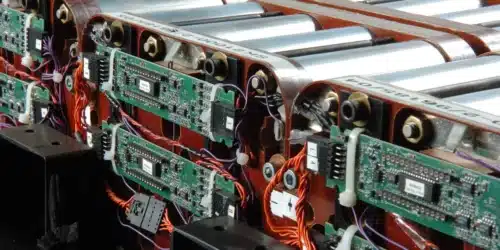The future of electric vehicles promises faster battery charging without sacrificing safety, paving the way for quicker and more reliable journeys.

The difficulty with existing lithium-ion batteries is in attaining swift charging capabilities without reducing the battery’s energy capacity, impacting both the range of the vehicle and the duration required for charging. Moreover, the quick charging process has introduced safety issues because of lithium plating, leading to significant cell polarization.
In a notable development for electric vehicle (EV) technology, a team from Chung-Ang University in South Korea has achieved a breakthrough in enhancing the charging times and safety of lithium-ion (Li-ion) batteries. The research aims to better Li-ion batteries specifically for EVs.
The team has devised a method to address these challenges by improving the electrolyte mix within the battery. They used a high concentration of LiPF6 (a Li-ion battery electrolyte), an electrolyte used in Li-ion batteries, along with linear carbonates to enhance the desolvation process crucial for fast ion transfer to the graphite anode. The focus was on electrolytes with low activation energy, like dimethyl carbonate, to support quicker charging times.
Their research showed that adjustments to the electrolyte could significantly boost the battery’s fast-charging ability while preserving its stability. Tests on a 1.2-Ah pouch cell revealed the battery could maintain triple the capacity after 200 cycles and crucially avoid the cell swelling often linked to lithium plating.
The investigation also included molecular dynamics simulations to examine how varying electrolyte concentrations affect battery performance, marrying experimental work with computational analysis to shed light on designing batteries for rapid charging.
Janghyuk Moon, the lead researcher and an associate professor, is optimistic that these technological advances will render electric vehicles more appealing by slashing charge times and extending the driving range, thereby promoting wider acceptance.
Moon said, “By improving the kinetics and stability of batteries under fast charging conditions, we hope to make a meaningful impact on the EV industry and ultimately on people’s daily lives.”






